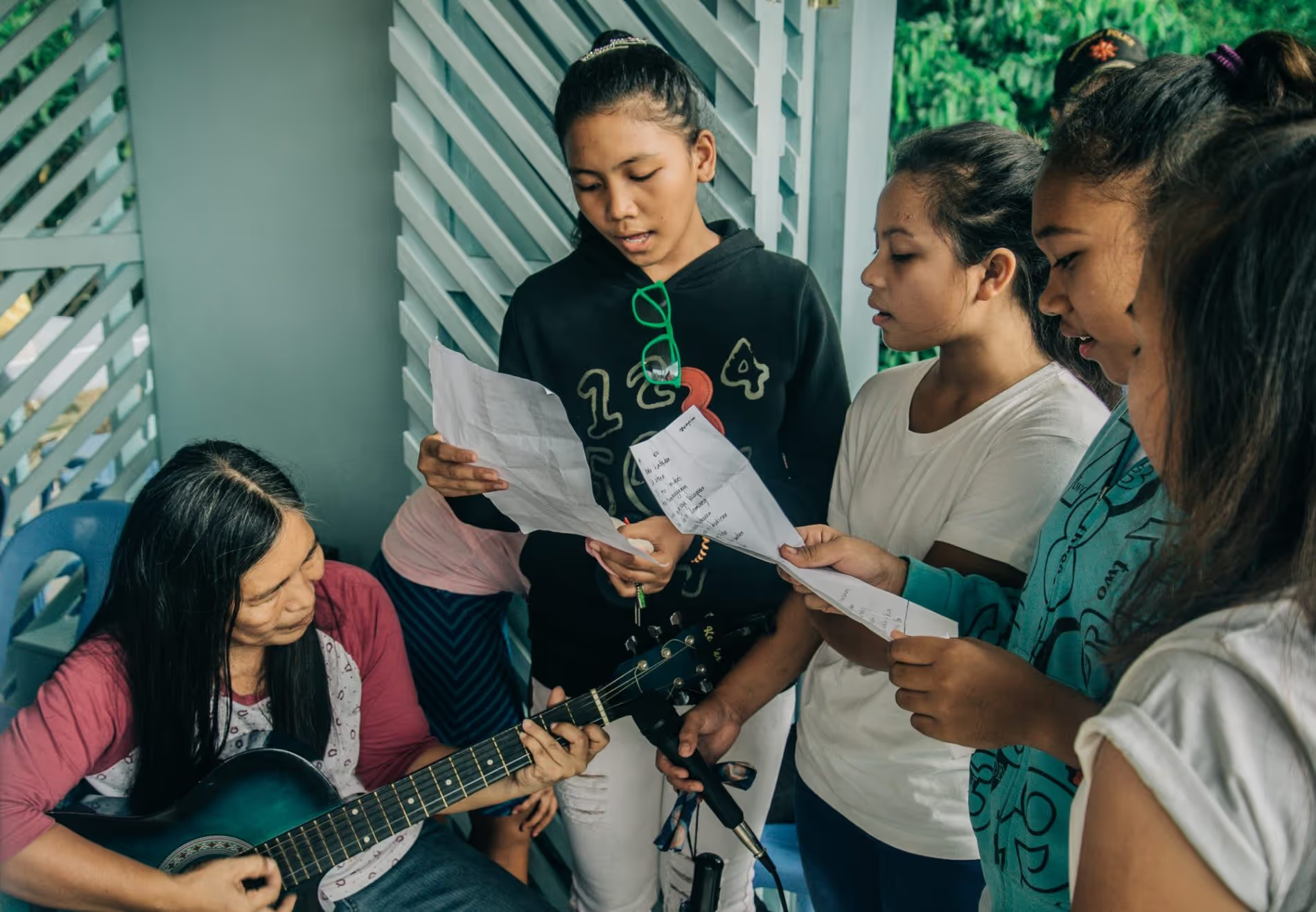Five new innovation projects taking a local perspective on measuring the impact of GBV programmes

We are pleased to announce five new additions to our portfolio of innovation projects, which will contribute to our aim of improving outcomes for people affected by humanitarian crises by exploring more effective, innovative and scalable solutions.
These projects came out of our Taking a local perspective on measuring the impact of gender-based violence (GBV) programming funding call, which we created with the aim of generating new context-based perspectives and insights to inform and progress the global agenda on measuring the impact of GBV programming in emergencies.
This was the second of three calls from our Humanitarian Innovation Fund programme designed to foster the improvement in the monitoring and evaluation (M&E) of GBV in emergency programmes. The first call was announced in 2017 and supported projects working on M&E collection methods, while a third funding call will be announced in May 2019.
The successful projects approached this issue in many different ways - from assessing current practices, to arranging the collaboration of frontline actors to define and address field-level challenges.
Creative tools for capturing impact of GBV in emergencies interventions
Lead organisation: Rural Development Initiatives in the Islands of Leyte Inc.
Partner organisation: CHERZ Indigenous Creations, ULIKID Parents Organisation, Inc., Northern Samar Children’s Ministries Network, TUKLAS Innovation Labs - Visayas
Using innovation and human-centred design thinking in developing measurement tools, this Consortium is conducting the very first impact assessment on GBV in emergency programming experiences in the Philippines - both in natural disaster and armed-conflict settings and in partnership with local communities.
See the full project.
Collaboration of frontline actors for more effective GBV programme measurement
Lead organisation: International Rescue Committee
Partner organisation: Programme de Secours aux Vulnerables et Sinistres - DRC
This project will create a space for GBV actors responding to the humanitarian crisis in the Great Lakes region to pool their existing knowledge on what works, and does not work, in measuring change achieved by GBV programming.
See the full project.
Exploring innovative monitoring and evaluation practices tailored for GBV programmes
Lead organisation: Syrian Expatriate Medical Association
Partner organisation: Syrian Bright Future, Women Now for Development
This project will explore to what extent current monitoring and evaluation (M&E) practices meet the needs of users and how they could be developed to better measure their impact in both the short and long term. Findings will open ways for innovative ideas that are uniquely tailored to GBV programmes.
See the full project.
Measuring the impact of GBV programmes in emergencies
Lead organisation: Childline Zimbabwe
Partner organisation: Bindura University of Science and Education
Childline Zimbabwe is undertaking a comprehensive review and analysis of existing practices used in measuring the impact of GBV programming in humanitarian responses.
See the full project.
Improving GBV outcomes in post-earthquake Nepal
Lead organisation: Oxfam
Partner organisation:Child Workers in Nepal Concerned Centre, Mahila Atma Nirbharta Kendra
Oxfam in Nepal is reviewing how GBV programmes in earthquake recovery are measured and identifying opportunities for innovation in impact measurement of such programmes. The project aims to disseminate learnings that will contribute to improvements in GBV outcomes for internally displaced people.
See the full project.
Stay updated
Sign up for our newsletter to receive regular updates on resources, news, and insights like this. Don’t miss out on important information that can help you stay informed and engaged.
Explore Elrha
Learn more about our mission, the organisations we support, and the resources we provide to drive research and innovation in humanitarian response.